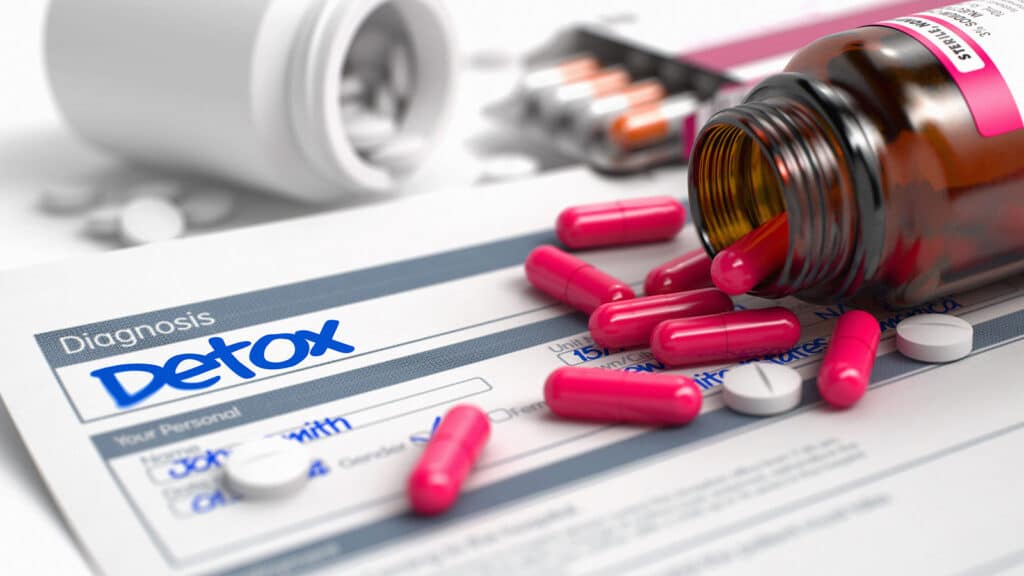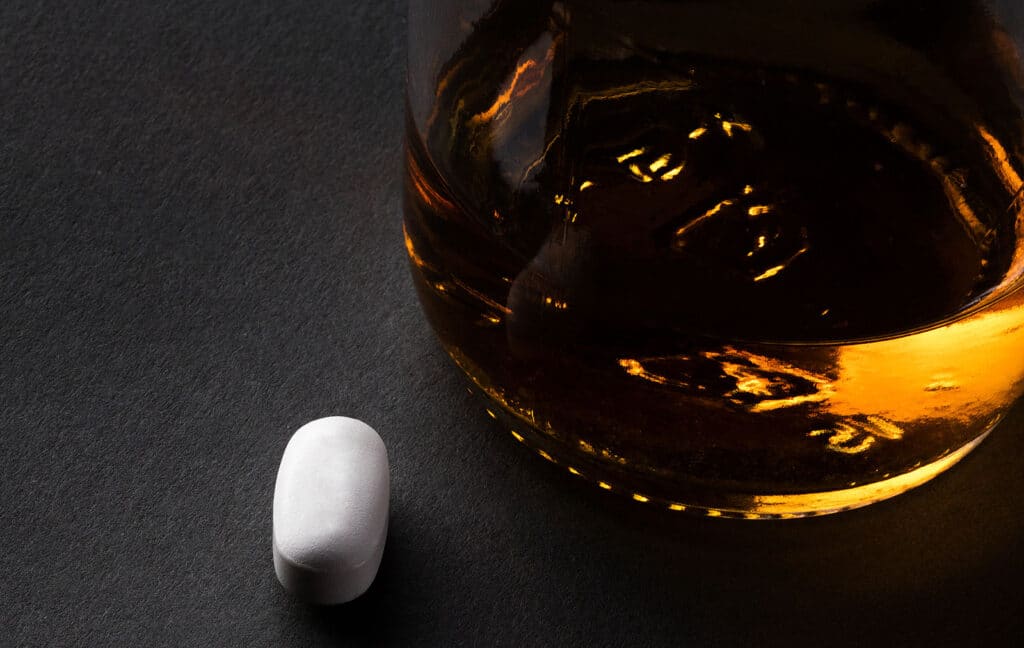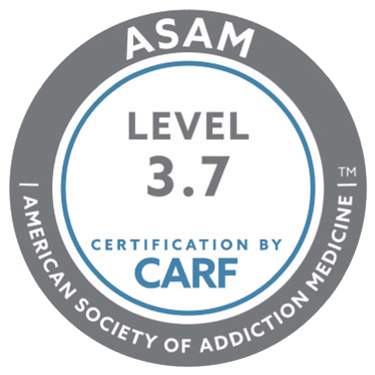The process of addiction treatment involves a wide range of treatment methods. With the right type of help, medical professionals will recommend a combination of techniques to control impulses and overcome cravings and relapses.
However, the detoxification process is usually a primary step in all types of substance abuse disorders, so in today’s guide, we’ll take a closer look at drug and alcohol detox along with everything you need to know about it.
What Is Drug and Alcohol Detoxification?
Detoxification, also known as “detox”, is a critical part of drug and alcohol dependence treatment and the first step toward recovery from substance addiction.

During detoxification, the body starts getting rid of the abused and foreign substances as well as their metabolites.
Ideally, the detoxification process is carried out naturally by the human body soon after it stops receiving a new dose of a certain substance(s).
However, in most cases, drug and alcohol detoxification will be accompanied by counseling, medical supervision, and the use of supportive therapy/medications.
This is because drug and alcohol detoxification will usually involve a withdrawal period, which are painful and uncomfortable symptoms that the patient goes through during initial treatment from addiction.
The duration of the medical detoxification period and the intensity of these symptoms will vary depending on several factors, including the abused substance and the severity of the addiction.
Although medical detoxification is mainly designed for physical dependence, it can also be used for some types of behavioral addictions, such as gambling addiction.
Why Professional Medical Detoxification Is Critical for Addiction Treatment
Although detoxification is a natural process carried out by the body, the process is often carried out along with medical supervision for several reasons, which is why it’s called “medical detoxification.
In this section, we’ll take a closer look at the different reasons why detoxification, particularly the medical one, is quite essential.

A Clean Start Is Critical for Treatment Success
Addiction is a neuropsychological condition that causes a compulsive urge to consume a certain substance or partake in a certain activity.
For that reason, the majority of addiction treatment focuses on the psychological aspect, such as impulse control and finding motivation to stay clean.
However, before working on the psychological part, you first need to get rid of all the chemicals that are interfering with your physiological functions and cloud your decisions.
In fact, many studies found that detoxification is a fundamental part of any successful treatment, and almost any addiction treatment that doesn’t involve a proper detoxification period is likely to end up with a relapse.
Unsupervised Detoxing At Home Can Be Dangerous
After cutting or reducing the dose of an abused substance, patients will often go through physically uncomfortable withdrawal symptoms.
Some patients might try to power through these symptoms while quitting the drug they’re taking completely “cold turkey”.
However, this can be extremely dangerous and may lead to life-threatening complications and side-effects , such as seizures or cardiac arrests, especially in the case of benzodiazepine addiction or severe alcoholism.
Instead of cutting off the drug completely, medical professionals will gradually reduce the dose to reduce the impact of withdrawal symptoms.
This process is known as “tapering”, and it’s extremely essential for safer and more successful addiction treatment.
Medical Professionals Provide the Necessary Support for a Safe Treatment
Although withdrawal symptoms from certain substances–especially alcohol, opioids, methamphetamine, and benzodiazepine are quite uncomfortable, some of them are quite manageable with medications.
This doesn’t only include painkillers for headaches and chills but also other prescription medications that greatly help in managing drug cravings and make the withdrawal phase a lot more tolerable in general.
In fact, some studies also found that the quality of the medical detoxification process and how it was carried out can predict the likelihood of relapses.
In other words, patients who go through proper drug or alcohol detoxification have a higher chance to maintain their sobriety for longer.

The Process of Drug and Alcohol Detoxification
Alcohol and drug Detox treatments involves a variety of aspects, and knowing more about them can greatly help patients while mentally preparing for the process.
Medical Review
Medical centers typically initiate the detoxification process by checking the abused substance and reviewing the medical history of the incoming patient.
This process is necessary because it helps medical professionals come up with the best strategy for the treatment depending on the unique situation of each individual.
Physical Withdrawal Symptoms
People who take large doses of a certain drug or drink heavily are likely to experience withdrawal symptoms when they start their journey to recovery.
In most cases, withdrawal symptoms may vary in terms of physical symptoms and severity from one person to another. However, some of the most common symptoms among different individuals include:
- Heavy cravings for the abused substance
- Headaches
- Body aches and generalized exhaustion
- Sweating and chills
- Irritability and shakiness
- Insomnia and nightmares
- Heavy mood swings
- Anxiety and depression
- Runny nose
- Diarrhea and/or vomiting
In some severe cases, the symptoms may also extend to paranoia, hallucinations (visual, auditory, or both), disorientation, confusion/tremors, and even seizures.
Medical Support During Detoxification
One of the great advantages of medically supervised detoxification is that patients can also receive proper medical support during this period.
For instance, some medications are actually approved by the U.S. Food and Drug Administration or found extremely effective while treating some types of substance use disorders, such as:
- Naltrexone: Works by binding to the opiate receptors in the body, which helps in reducing opiate and alcohol cravings.
- Acamprosate: Helps in reducing the impact of alcohol withdrawal by stabilizing the disrupted brain signals during detoxification
- Buprenorphine: As a partial opiate agonist, it’s used to reduce the effects of opiate withdrawal symptoms.
- Anticonvulsants: Typically prescribed during severe alcoholism withdrawal to prevent seizures, such as Carbamazepine and Gabapentin.
- Benzodiazepines: Although they’re a commonly abused substance, medical professionals may prescribe them in moderate doses to help reduce anxiety associated with severe withdrawal symptoms.
- Modafinil: Helps in the treatment of excessive exhaustion and sleepiness associated with stimulant dependence, such as cocaine.
In addition to these treatments, medical professionals may also prescribe other necessary medications for any unique symptoms or complications that may arise during withdrawal.
This is why creating a personalized treatment plan and medical supervision during detox is quite essential for the safety and effectiveness of the treatment.
Duration of Detoxification
The duration of a detox period may extend from as little as 5 to 10 days all the way to 3 or more weeks.
The significant variation in the duration of the detoxification process is controlled by a variety of factors, including:
- The type of substance that the patient is addicted to
- The severity of drug addiction and the current dose
- Whether the patient is addicted to more than one substance
- How long the drug abuse disorder has been going
- Family history and genetic differences when it comes to metabolizing the drug and eliminating it from the body
- Whether there are any underlying medical conditions caused by the addiction
- Whether there are any coexisting conditions

Types of Detoxification
The process of detoxification can take a variety of forms depending on its type and how it was carried out. Let’s have a closer look at these types as well as their pros and cons.
Medical detoxification is typically the go-to method when it comes to safe and reliable treatment for drug and alcohol addiction .
As the name suggests, this type of detoxification is mainly based on having professional medical support throughout the treatment process, and it’s classified into two different types, which are inpatient and outpatient detox programs.
Inpatient Detoxification
Inpatient detox is the type of addiction treatment where patients are admitted into a facility, such as a medical rehab center, to receive addiction treatment options and rehab programs.
These facilities usually have medical professionals on premises throughout the day to provide continuous medical support to patients suffering from substance use disorder.
What makes this type of treatment special is that these facilities are designed to provide a controlled environment for patients that are free from stress and other triggers that may push patients to relapse and use drugs again.
In addition to medical treatment, these centers will also offer behavioral therapy to help in controlling impulses as well as the necessary expertise to manage cases with coexisting and underlying conditions.
Since these centers also provide accommodation, they are also known as “residential treatment centers”.
Some of these centers are similar to a hospital setup while others carry the vibes of a spa or a recreational facility.
The difference here is typically the luxury level of the facility, which is usually unrelated to the medical aspect of the facility.
The main downside of inpatient/residential treatment facilities is that staying in the facility is usually mandatory during the detoxification period.
This can be somewhat restrictive for some people and requires some preparation, planning, and previous arrangement.
Most facilities will allow family members and loved ones to visit the patients occasionally to make up for the lack of continuous support.
Outpatient Detoxification
Outpatient detoxification is a relatively less restrictive type of treatment where patients are allowed to go through the detoxification process while staying at home.
This type of treatment is ideal for those who are suffering from relatively mild substance abuse and are willing to adhere to treatment. t
In that situation, the withdrawal symptoms aren’t too difficult and can be managed by sticking to the doctor’s treatments and instructions.
Outpatient detoxification still requires hospital visits for regular checks and updates regarding treatment, so the patient is expected to go to the hospital around 5 to 7 days a week.
Yet, the main advantage of the outpatient detoxification is that it doesn’t involve major changes regarding accommodations and allows patients to go through treatment without major disruptions to their schedules.
Outpatient detoxification is also suitable for those who prefer to keep their treatment more confidential, as they don’t have to justify being absent from work and social events for multiple weeks.
With that being said, outpatient treatment detoxification is only suitable for mild addictions and is not typically preferred for opiate addiction and severe alcoholism.
In many cases, a combination of inpatient treatment and outpatient programs detoxification can be used to benefit from their specific advantages.
In that case, the patient spends the first few days (or weeks) of treatment in a rehabilitation center and then receives the rest of the treatment as an outpatient when the withdrawal symptoms are more tolerable/manageable.

Important Considerations for Drug and Alcohol Detoxification
During the detoxification process, there are some essential aspects that you need to keep in mind to increase the chances of successful treatment. These considerations include:
Treating Underlying Medical Conditions
Some underlying medical conditions may interfere with the treatment of addiction, whether they already existed before substance abuse or were caused by it.
In that case, the detoxification intervention stage must also focus on treating these conditions to facilitate recovery and rehabilitation.
Managing Co-occurring Mental Health Disorders
Alcohol abuse and drug abuse is sometimes caused by underlying psychological conditions or emotional trauma.
In that case, treating the addiction without working on these problems will typically result in a relapse.
For that reason, a solid addiction treatment plan should take into account any conditions and mental issues that need concurrent treatment.
Providing a Personal Support System
As you now know, the detoxification process is quite tough and might involve some uncomfortable to severe withdrawal symptoms.
For that reason, providing patients with proper counseling and emotional support is incredibly essential to help them commit to treatment and overcome those difficult times.

Wrap Up
With that said, you now have a brief overview of everything you need to know about drug and alcohol detox.
As you can see, the detoxification process is extremely necessary during addiction treatment and has a huge impact on the success rate of the treatment.
If you or your loved ones suffer from alcohol and drug use disorder, don’t hesitate to seek medical help from a qualified professional.
Substance abuse treatment can be tough but it’s entirely achievable as long as there’s proper medical and emotional support, which is also essential to avoid relapses after recovery.
FAQ
What is detoxification (detox)?
What are withdrawal symptoms?
How long does detox last?
Is detox the same as treatment?
Can I detox at home?
What is medical detox?
How do I know if I need detox?
What happens after detox?
Is detox always necessary for addiction treatment?
Can detox prevent relapse?







